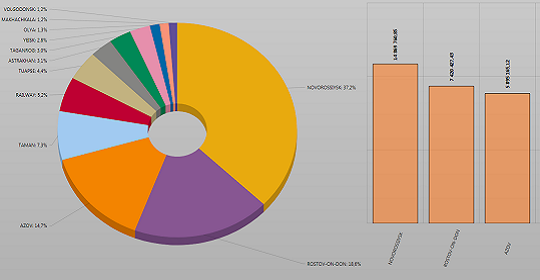Some converters may cease production in the coming months.
As a result of poor harvests in Canada and France, the world market is short of about 2-3 million tons of durum wheat, while supplies have been uninterrupted for many years.
Global durum wheat production in 2021 is at a 20-year low.
In Canada, the world’s main exporter of crops (accounting for 2/3 of world exports), the harvest is 50% below 2020.
The current situation is pushing prices up: durum wheat is more expensive on the stock markets over the past 13 years.
And since June this year, export prices have almost doubled.
If earlier Italian producers could cover most of their needs from their own harvest, then this year the harvest of durum wheat in the European Union is also weak.
According to October data, the European Commission has downgraded its estimate of the harvest from 4.3 to 3.7 million tons.
The global crop stocks are being affected by the effects of the pandemic, which are now at a record low in six years.
Not only in Canada, but also in the United States, the durum wheat harvest is expected to decline by about half.
The culprit for the low harvest is unfavorable weather conditions.
“Rising durum wheat prices are a symptom of climate change,” says Alberto Cartasegna, Managing Director of the company Miscusi, which owns ten restaurants in Italy.
First of all, Italian producers are concerned about the availability of raw materials in the first half of 2022.
According to Vincenzo Divella, Managing Director of the Divella pasta brand, while the production operates on Italian raw materials, the situation with durum wheat is very serious.
Rich and developing countries alike will feel the price pressure.
In France, prices for inexpensive pasta (and they are most dependent on the cost of raw materials) in October alone increased by 20% compared to October last year.
North African countries expect the cost of durum wheat bread to rise by about a quarter.
Couscous and bulgur are also made from durum wheat, and their producers have no other choice but to raise prices to cover costs.
Costs are rising not only for raw materials, but for energy, logistics, transportation and packaging.
According to preliminary estimates, Canadian harvest forecast will be lowered again in December.

